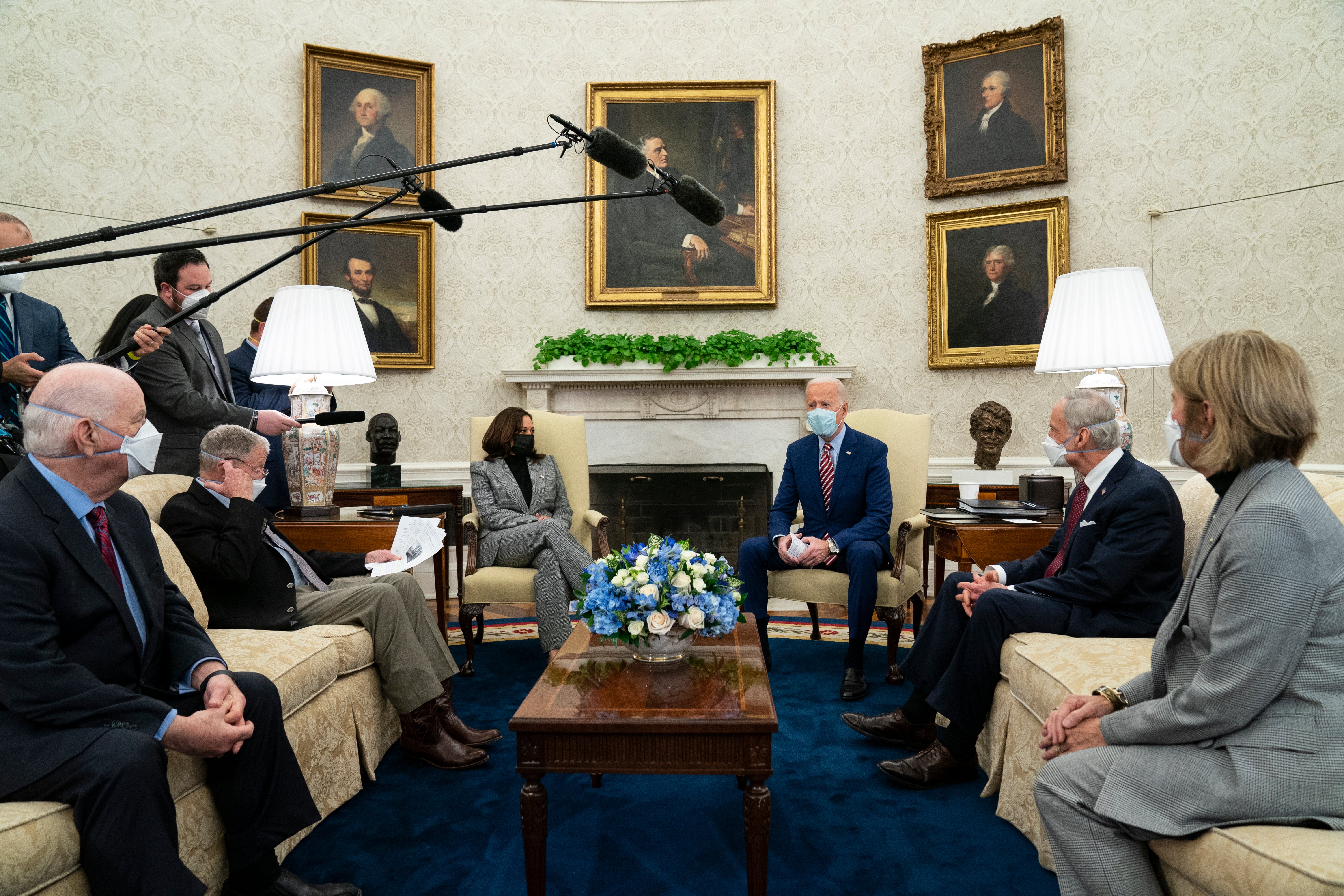Biden hopes infrastructure can bridge partisan divide
President Joe Biden is hoping that launching an effort to build roads and bridges can help to unite Democrats and Republicans in a time of sharp partisan divisions

Your support helps us to tell the story
From reproductive rights to climate change to Big Tech, The Independent is on the ground when the story is developing. Whether it's investigating the financials of Elon Musk's pro-Trump PAC or producing our latest documentary, 'The A Word', which shines a light on the American women fighting for reproductive rights, we know how important it is to parse out the facts from the messaging.
At such a critical moment in US history, we need reporters on the ground. Your donation allows us to keep sending journalists to speak to both sides of the story.
The Independent is trusted by Americans across the entire political spectrum. And unlike many other quality news outlets, we choose not to lock Americans out of our reporting and analysis with paywalls. We believe quality journalism should be available to everyone, paid for by those who can afford it.
Your support makes all the difference.President Joe Biden is hoping that launching an effort to build roads and bridges can help to unite Democrats and Republicans in a time of sharp partisan divisions.
Biden met with lawmakers from both parties at the White House to discuss infrastructure on Thursday, even as the Senate is holding impeachment proceedings against former President Donald Trump where partisan divisions are on full display.
“I’ve been around long enough," Biden said, "that infrastructure wasn’t a Republican or a Democratic issue.”
The president specifically mentioned the potential for improvement projects in the states of the senators attending the meeting, signaling that lawmakers might be willing to cooperate in order to make their voters' lives better.
Biden highlighted the need for repairs to “a lot of bridges in West Virginia.” Republican Sen. Shelley Moore Capito of West Virginia, the ranking member of the Environment and Public Works Committee, was among those in attendance.
The president also referenced Route 9 in his home state of Delaware, which he shares with Democratic Sen. Tom Carper, the committee chairman, who was also in the Oval Office meeting Thursday and had discussed these issues with Biden last week.
Also at the meeting were Vice President Kamala Harris, Transportation Secretary Pete Buttigieg virtually, Republican Sen. Jim Inhofe of Oklahoma and Democratic Sen. Ben Cardin of Maryland.
Biden said there are “a number of things out there that the American people are looking for us to step up" and do. During the presidential campaign, Biden committed to deploying $2 trillion on infrastructure and clean energy investments over four years.
His campaign pledged that millions of jobs would flow from repairing roads, building electric vehicle charging stations, weatherizing buildings, improving access to public transit and updating the U.S. power grid to be carbon-pollution free by 2035.
Since the pandemic began in February 2020, the United States has lost 256,000 construction jobs, lowering total construction employment to 7.4 million. Still, total construction spending has increased slightly to an annualized rate of $1.49 trillion, according to the Census Bureau. About a quarter of that spending comes from the federal, state and local governments.
Both the Obama and Trump administrations famously promised to invest in infrastructure, only never fully to deliver. The term “infrastructure week” became something of a joke during the Trump era, when it was associated with a policy push that was meant to take public attention away from controversial remarks or actions by the president.
Biden has been warned that his push for $1.9 trillion in coronavirus relief might hamper a later push to get bipartisan support for infrastructure improvements. In a speech earlier this month to the Senate, Sen. Rob Portman, R-Ohio, said a party-line vote on financial relief would “poison the well” for infrastructure.
“I think it’s going to be harder if we start off on the wrong foot, if we start off in a purely partisan way,” Portman said.
The Kinder Institute for Urban Research at Rice University released an analysis Wednesday about the infrastructure needs of 134 cities. Its survey found cities prioritizing transportation and water and climate projects, but also projects to address the fallout from the pandemic such as broadband access, emergency response and health facilities, and public transit for essential workers.
“Mayors and other local regional leaders around the country are very much in alignment with what President Biden has talked about, especially with climate change," said Bill Fulton, director of the institute. "But it’s clear that the pandemic has changed infrastructure needs.”